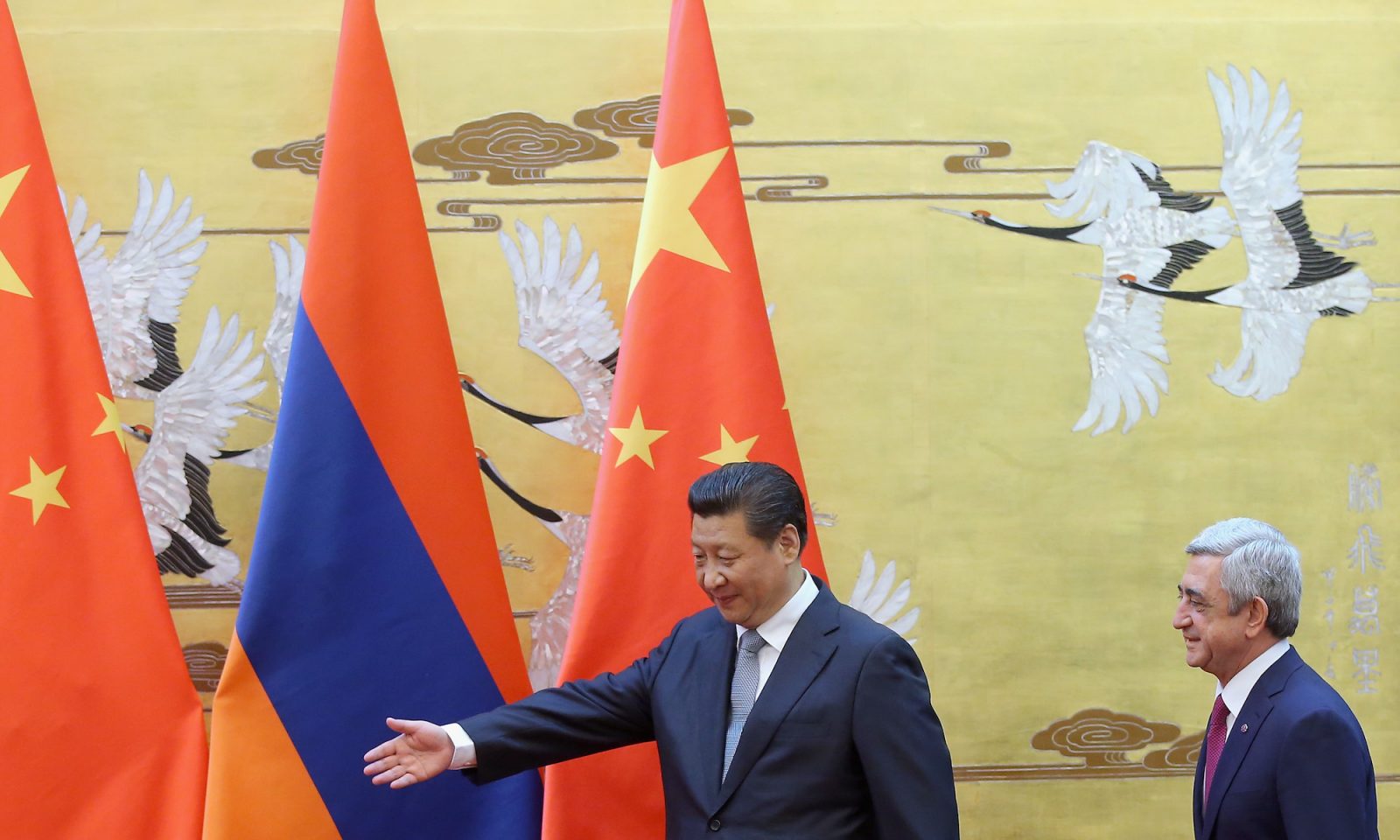Asia Times
PRAKASH KATOCH

Besides a slowing economy, China’s biggest worry is its internal stability. During 2017, China spent 1.24 trillion yuan (US$196 billion) on internal security compared with 1.02 trillion yuan in central-government funding for the military. But to mitigate its own problems and emerge as a dominant global power, China is roping other countries into a “deep coalition” that may not end well for the participants.
In Xinjiang, China spent $9.1 billion on domestic security during 2017, a 92% increase from 2016. By 2026, China hopes to move 250 million people from rural regions to the cities, which appears to be impossible and will likely increase strife between the haves and have-nots. But in 2016, China started relocating 9.81 million people living in “impoverished and unsustainable conditions” in 22 provinces to “geographically less disadvantaged areas.” The project is to be completed by 2020 at the cost of $158 billion.
With a high unemployment rate among graduates, China saw a significant increase in protests by workers and labor disputes across the country in 2015. To ease internal strife, China launched the Belt and Road Initiative (BRI), with 80% of Chinese companies ready to participate. Money was splurged to capture projects and jobs in countries that could not repay within the prescribed time limit, enabling China to extract repayment in strategic terms.
President Xi Jinping assumed the role of a global moneylender, with debt-trapped countries providing more and more projects to China on Chinese terms. Besides the financial obligations, they enabled China’s cultural influence as well. All these created scopes for China’s strategic, political and economic control over the target country.
The BRI-related projects are meant to facilitate Chinese access to natural resources, markets for its low-cost goods, and more job avenues for its workers. The BRI also enables China to dominate sea lanes.
But the BRI is just a part of China’s bigger plan to emerge as a superpower even as the trade war with the US is affecting the country internally and the world is getting wary of the BRI. Malaysia has canceled some BRI-related projects and a Chinese company has suffered a $1 billion loss in Africa. But the fact remains that China continues to make strategic gains and does not care what its critics think.
The Chinese concept of “unrestricted warfare” is well known but not many are conversant with China’s strategy of “deep coalitions.” The latter idea is present throughout a study of unrestricted warfare published in 1999, with repeated references to the political role played by non-state actors ranging from credit rating agencies to narco-mafias. The study, by two Chinese officers, also emphasizes the “civilianization of war” thesis.
China’s “deep coalition” idea implies it could group together a number of nation-states, civil-society organizations, a narco-mafia, private corporations, individual speculator(s) and other components; it keeps players at many levels in the economic and political systems.
Execution is also done at multi-dimensional levels; all groups operate simultaneously in a continuous flow – multiplying, fissioning, then fusing into others, and so on. Here, the balance of power relations among coalition nations and the ability to configure the right combination of players at every level is important.
China has on board Pakistan, Afghanistan and the Taliban, who control not only a large chunk of Afghan territory but also much of the “Golden Crescent” region. That region has been the world’s leading producer of illicit opium since 1992.
The beauty is that despite China’s crackdown on its Muslim ethnic-minority Uighurs in Xinjiang, there is no protest from the Taliban, which is a 100% Sunni organization. No murmur from Pakistan is understandable, with the country having become a close partner of China. But China’s strategic and economic gains in Afghanistan and Pakistan are enormous. The China-Pakistan Economic Corridor (CPEC) is a strategic-military spear whose tip rests on the Strait of Hormuz.
In Myanmar, China has developed the 10,000-strong United Wa State Army (UWSA) as its deadly proxy. The well-armed Wa tribe controls a major portion of another major opium-producing region, the Golden Triangle (which straddles the Myanmar, Thai and Laotian borders), as Myanmar is reportedly the world’s second-largest illicit opium producer after Afghanistan.
Strengthening the USWA, and now arming the Arakan Rohingya National Army (ARSA) along with Pakistan, enables China to control Myanmar and extract economic and strategic gains. The irony here too is that the Wa are 100% Buddhists but China has them in the bag despite its action in Buddhist Tibet.
Incidentally, Lobsang Sangay, head of the Tibetan government in exile, said recently that China’s BRI spelled colonization, subjugation, and exploitation of natural resources as has been ongoing in Tibet.
Above are just two examples of China’s deep coalition, but what about India? According to a recent parliamentary report, India is “overtly cautious” of Chinese sensitivities, but Beijing does not show the same deference to India’s sovereignty concerns. The unsaid part is that this demonstrated meekness, besides other reasons, could well be on account of China’s political warfare and deep coalitions operating against India.
In fact, a recent book warns of a malefic Chinese presence in India that has penetrated the country and seeks to destroy it from within. It also says the Chinese leadership aims to render India inconsequential in the Asian scheme of things.
Most countries are now cautious about Chinese companies such as Huawei and ZTE and China’s plans for fifth-generation (5G) wireless technology, but there are no such concerns in India. On the contrary, it is being said that there is no threat to national security.
Xi Jinping has accumulated total power and is relentlessly pushing his “China Dream,” but in China itself, Beijing’s reforms are being questioned. But the question remains on how the world will respond to China’s strategy of deep coalitions, which appears to be working well. After all, a chain of countries have accepted the BRI bait and not all of them can be classified as gullible victims.



